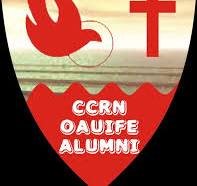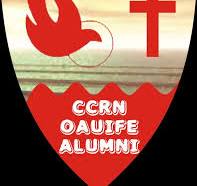Baptism is one of the seven sacraments of the Catholic Church and it is often referred to as the first of all the sacraments, given that it is the sacrament that makes an individual a Christian and a member of the Church. Without baptism, a person is unqualified to receive any other sacrament in the Church. The Church holds that the saving grace won by Jesus is offered as a free gift to us, and is accessible through repentance, faith and baptism. According to the Catechism of the Catholic Church, “Holy Baptism is the basis of the whole Christian life, the gateway to life in the Spirit (vitae spiritualis ianua), and the door which gives access to the other sacraments. Through Baptism we are freed from sin and reborn as sons of God; we become members of Christ, are incorporated into the Church and made sharers in her mission: ‘Baptism is the sacrament of regeneration through water in the word.’”(CCC 1213). In other words, baptism frees us from sins (Act 2:38), connects us to Christ (Rom 6:3-6, Gal 3:27, Col 2:11-13), and through him connects us to all of the other baptised (1 Cor 12:13). The sacrament of baptism is prefigured several times in the old testaments with events such as the narrative of Noah’s Ark which St Peter explains as a symbol of Baptism (Gen 6:9-18, 1 Peter 3: 20-22), the crossing of the Red Sea by the Israelites which St Paul describes as a form of baptism (Ex 14:11, 1 Cor 10:1-2), the purification rites (Ex 30:17-21, Num 19:11-13), the crossing of the Jordan River into the promised land (Josh 3:14-17) and in the new testament by the baptism of John (Matt 3:4-5, Mark 1:4-5). During his earthly ministry, our Lord Jesus Christ was baptised by John at the River Jordan (Matt 3:13-17), he explained the necessity of baptism for salvation in his encounter with Nicodemus and also to the apostles (John 3:3-5, Mark 16:16), had his disciples baptise people (John 3:22, 4:1-2) and as his parting words before his ascension, Jesus commanded his disciples to make disciples of all nations and baptise them (Matt 28:18-20). The importance of this sacrament is also demonstrated in the Acts of the Apostles where conversions were followed by baptism (Acts 2:37-41; 8:5-13; 8:36-38; 9:17-19; 10:47-48; 16:13-15; 16:27-34; 18: 5-8; 19:1-6). What does Baptism do for us?
i. Cleanses previous sins: Through baptism, we receive forgiveness for all sins that have been committed before baptism including original sin and actual sins (Acts 2:38; 22:16, Mark 1:4, Col 2:12-13).
ii. Initiates our salvation journey: In his encounter with Nicodemus, our Lord affirmed that baptism is necessary for salvation (John 3:3-5) as well as in his parting words before his ascension (Mark 16:16). St Peter and St Paul confirm the saving power of baptism in their letters (1 Peter 3:21, Titus 3:5-7).
iii. Makes us new creatures: John’s baptism was that of repentance for the forgiveness of sins (Mark 1:4, Acts 19:4) which was fulfilled and completed in Christ (Matt 3:11-12, John 1: 29-33, Luke 3:16), whose first message after baptism was ‘Repent, for the Kingdom of heaven is at hand’ (Matt 4:17, Mark 1:15). Through baptism, we sacramentalize our repentance and become new creatures; we are reconfigured, we undergo a change in mind, a change in will and a change in direction. Our lifestyle is altered and we are realigned to our purpose. This means that there are certain things we can no longer choose to do and certain lifestyles we can no longer afford to live, for the old man is dead and a new man is alive (Romans 6:1-18, Col 2:12-13).
iv. Makes us children of God and members of Christ: In baptism, we are baptised in the name of the Trinity which unites us with Christ and makes us adopted sons and daughters of God (Gal 3: 26-27, Eph 4:4-6, Rom 6: 4 -11). By being united with Christ, we share in his dignity and become priests, prophets and kings.
v. Makes us members of the Church: Through baptism, we become members of the body of Christ which is the Church (1 Cor 12: 12-14; 27, Eph 4:3-6). Baptism also constitutes the bond of unity among all Christians including those who have been validly baptised but not in full communion with the Church. Through baptism, all christians become our brothers and sisters.
vi. Gives us the Holy Spirit: The Holy Spirit dwells in us at baptism (Acts 2:38; 11:16, Matt 3:11, 1 Cor 12:13). The Holy Spirit empowers us to live out our christian calling, proclaim the gospel and lead others to Christ.
vii. Infuses our soul with an indelible character: Baptism infuses an indelible spiritual mark (character) of belonging to Christ on our soul, which can never be erased. This mark makes it impossible to re-baptise an already baptised person. St Thomas Aquinas explains that this mark dwells in our cognitive power i.e. power to know. By this mark, we can come to know God more intimately, and be able to use and receive other signs of Christ’s love for us.
In our next post, we’ll be talking about Who can be baptised?
Like, share and leave your comments.
Shalom.
By Bro. Martin Olorunlomojo

